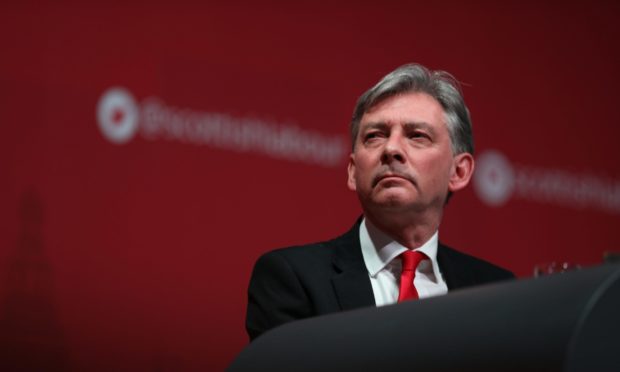That Richard Leonard’s ill-starred spell as Scottish Labour leader should come to an end was unsurprising in itself. But what did come as shock to most of his colleagues was the timing of his departure, just four months before the Scottish election.
But once the party gets over the sudden nature of his resignation, Labour will find itself in familiar territory – in a land of confusion with an uncertain future lying ahead.
Such an outcome seems entirely characteristic of what has been one of the most uninspiring and ineffectual periods of Scottish Labour leadership – and that’s saying something.
The tributes to Mr Leonard’s qualities as a “decent” man were unable to mask his failings and the inability of a politician, regarded as Jeremy Corbyn’s man in Scotland, to make any impression on the SNP’s dominance at Holyrood.
As one Labour senior source said: “It wasn’t just the fact that his personal ratings were so poor in the opinion polls or that he failed to generate much in the way of public recognition, it was also that his policies simply weren’t cutting through. He very rarely landed a blow in the Holyrood chamber on the SNP.”
Within moments of his departure, the fault line running between those on the left of Scottish Labour and the moderates reopened. His comrade on the left, Neil Findlay MSP, condemned the “flinching cowards and sneering traitors” whom he blamed for Mr Leonard’s downfall.
Looks like those who have led a 3 year campaign of briefings to journalists, leaks of private conversations and the constant feeding of stories to the media to bring down a decent and honest man have succeeded. These flinching cowards and sneering traitors make me sick.
— Neil Findlay MSP (@NeilFindlay_MSP) January 14, 2021
Speculation
Meanwhile, the moderates were taken completely by surprise and were asking themselves why Mr Leonard had quit now after his stubborn refusal to budge last year when senior Labour figures were calling for him to go.
It was in September last year that Mr Leonard survived an internal no confidence vote, clinging on to the leadership despite the calls of many prominent Labour figures for him to go.
Speculation within the party was that the prospect of the coronavirus delaying the election had played a part in the timing of his decision. If the contest was moved from May to September, for example, then the issue of his leadership would have resurfaced, piling on the agony for the party.
Others suggested that the trade unions, once the backbone of Mr Leonard’s support, were growing increasingly concerned about his performance.
Mr Leonard himself simply said speculation about his leadership was distracting from the party message.
Inevitably, senior party insiders suggested that UK leader Sir Keir Starmer had “had a hand” in his decision to resign, a suggestion that was described as “completely wrong” by sources close to Mr Leonard.
And as with all Labour matters north of the border, there will be speculation that Gordon Brown played some sort of role, with one commentator going as far as to suggest the former prime minister could take over as Scottish Labour leader.
Given how high the stakes are, there's surely a case for Gordon Brown becoming Scottish Labour leader. Here's his recent @NewStatesman essay on how to save the UK. https://t.co/hyolPBqi76
— George Eaton (@georgeeaton) January 14, 2021
Leadership contest
That far-fetched scenario was dismissed by Labour insiders, who are more interested in who will actually take over from Mr Leonard.
His resignation is likely to trigger yet another Labour leadership contest, which would have to be squeezed in ahead of the May poll, a process that will distract from fighting the election.
Moderates would be keen to see Glasgow MSP Anas Sarwar resurrect his leadership ambitions. Mr Sarwar was defeated by Mr Leonard in the bitter battle that led to Mr Leonard becoming leader three years ago.
Other candidates could be Monica Lennon, the party’s health spokeswoman, Alex Rowley, the veteran left winger from Fife who is close to Gordon Brown, Jackie Baillie, who has been installed as interim leader, and Daniel Johnson, the MSP for Edinburgh Southern.
The alternative would be for a candidate, Mr Sarwar, say, being parachuted in as Mr Leonard’s replacement in short order, thus avoiding the blood-letting of a contest.
Others take the view that Ms Baillie should remain in charge until the election, delaying the contest for a permanent leader until after the poll. Under that sequence of events, there may be the option of former MPs and left-wingers Katy Clark and Paul Sweeney challenging for the leadership if they are elected to Holyrood.
Whatever the future holds for Labour, the party’s supporters will hope that Mr Leonard’s decision will spark some kind of revival. But there can be no denying that the road to recovery will be rough and steep.

